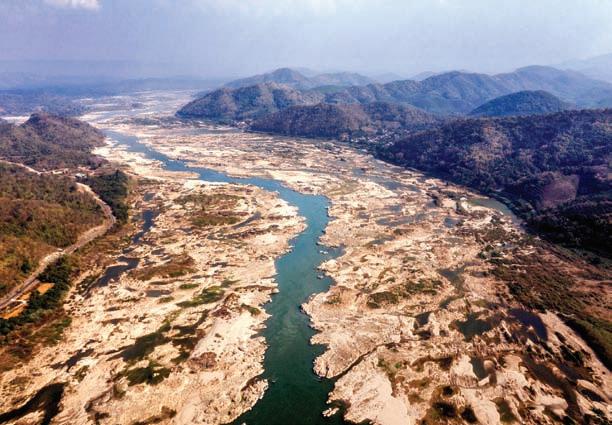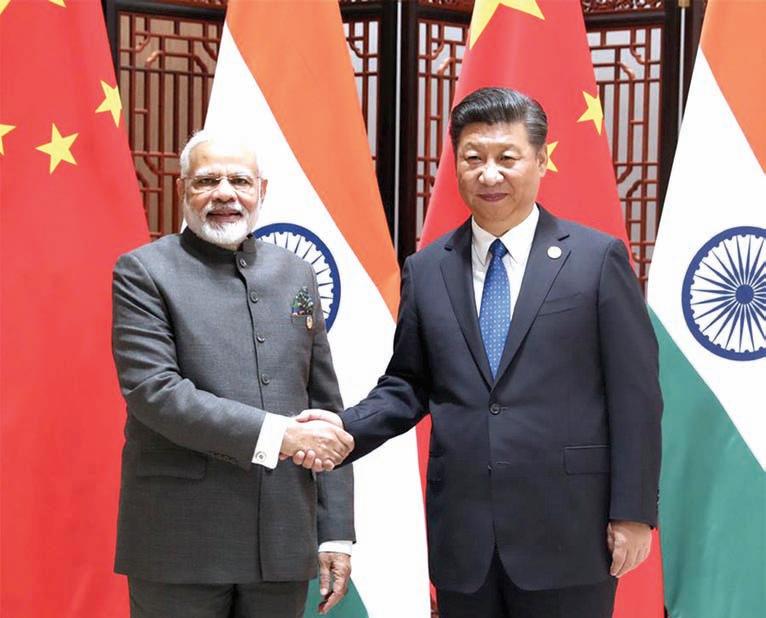RAKSHA ANIRVEDA
THOUGHT POT
WATER REPLACES OIL AS STRATEGIC RESOURCE IN 21ST CENTURY Water is fast replacing oil as strategic resource, and competition over limited water resources is one of the main concerns for the 21st century. Water is a central element in global affairs and the development agenda, with wide implications for international peace and security “Conflicts over water arise from the fact that under conditions of increasing scarcity, competition levels also increase.”
–Anthony Turton, Trained Scientist specialising in water resource management as a strategic issue
By PRACHITA SINGH SAXENA
W 92
ater is a precious natural resource and it has the potential to be one of the greatest challenges of the 21st century. According to the United Nations estimates, more than half the global population will live in water-stressed or water-scarce countries by 2025. Studies point out that India, along with China, France and the US, will have no drinking water by 2040 if consumption of water continues at the current pace. Changes result from continued economic growth and modernisation in these countries, including an increase in irrigated farming, rising industrial production, expanding consumption by the growing middle class and particularly in China, raising animals for a more meat-centric diet—will place even greater pressure on water supplies. Macro challenges such as climate change and pollution will further strain freshwater resources. Limited availability and increasing demand always results in conflicts to control the resource. Growing pressure on global water resources is having major impacts on our social, economic, and environmental well-being. Future wars could be fought to control water or water could be the new weapon for war among nation states, in this century.
www.raksha-anirveda.com
RA_Oct-Dec20.indb 92
WATER – THE ELIXIR OF LIFE Absolute water scarcity is already affecting more than 500 million people in more than 30 countries. The role of water scarcity in creating preconditions of discontent and desperation— precursors to violent conflicts— are widely acknowledged. Global water use almost tripled in the second half of the 20th century,
increasing much faster than the world’s population in the same time period. Demand for water is projected to grow by over 40 per cent by 2050. An estimated 1.8 billion people will soon live in countries or regions with water scarcity. An Intergovernmental Panel on Climate Change (IPCC, a UN Body) special report on climate change adaptation states that there has been a three-fold population increase in the past century and a six-fold increase in water consumption globally. If trends in population and energy use continue, it could leave a 40 per cent gap between water supply and demand by the year 2030. The effects of climate change coupled with population growth are expected to drive competition for water, potentially exacerbating political tensions in parts of the globe. The reports says nuclear power and coal—the most “thirsty” power sources— should be eventually replaced with more efficient methods, especially renewable sources like wind and solar.
WATER – THE NEW OIL
The oil crisis confronting the world today is much like the looming crisis in water, with depleting supplies, unequal distribution and access, and the inevitable spectre of rising costs and increasing conflict around the sharing of this vital natural resource. As with oil, water exploitation raises an inter-
10/12/2020 7:36:33 AM



















